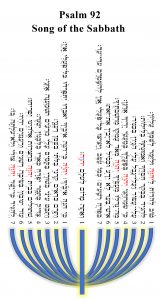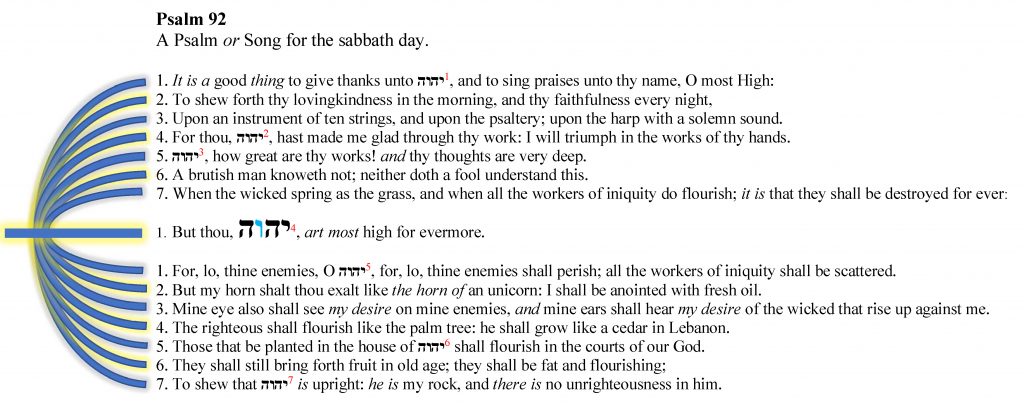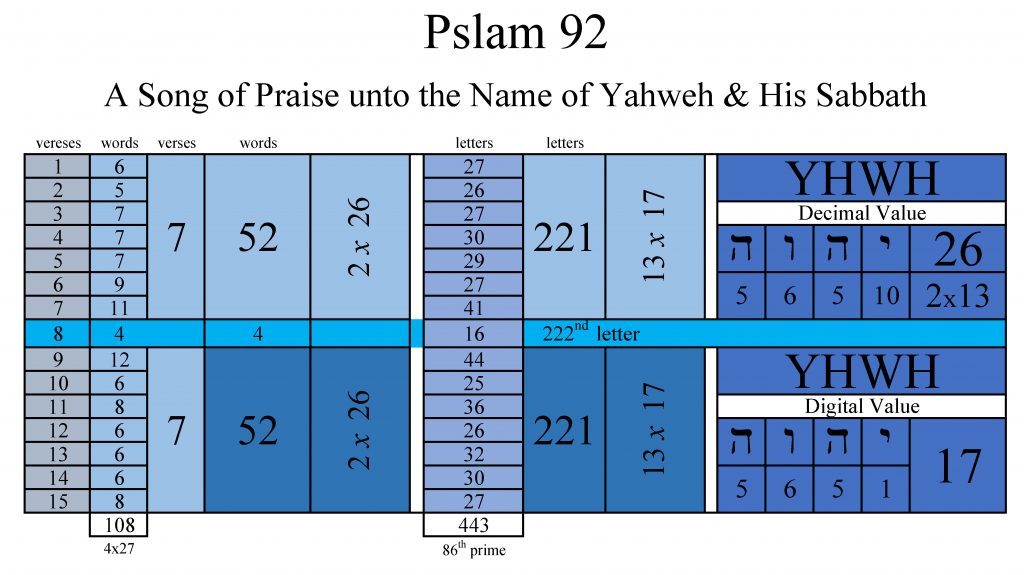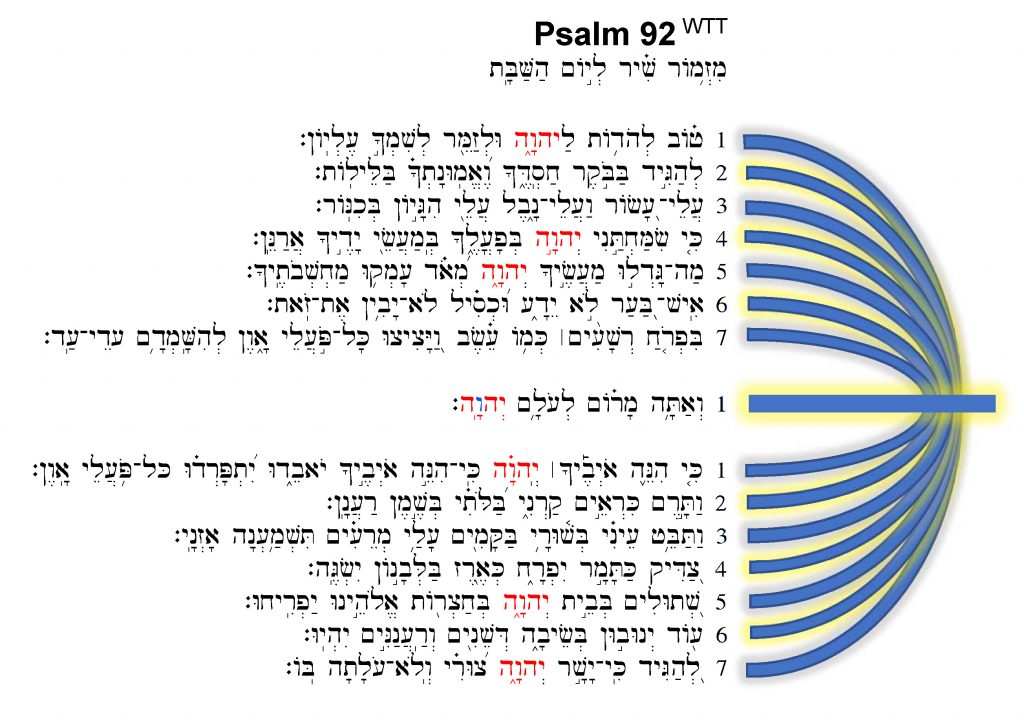 Over two thousand years ago, a Hebrew Psalmist wrote the beautiful words of Psalm 92 in honor of Yahweh and His Sabbath. The title of the psalm is a Song for the Sabbath day. Its first line tells us it is “good to give thanks unto Yahweh and to sing praises unto thy name…”.
Over two thousand years ago, a Hebrew Psalmist wrote the beautiful words of Psalm 92 in honor of Yahweh and His Sabbath. The title of the psalm is a Song for the Sabbath day. Its first line tells us it is “good to give thanks unto Yahweh and to sing praises unto thy name…”.
This psalm is a song of praise, gladness, and faith in Yahweh. Beautiful, to be sure, but there is more to this psalm than meets the casual observer’s eye on first reading.
The psalmist took this psalm and organized it beyond just its words and their meaning. Hidden below the Hebrew poetic lines is a numerical structure that emphasizes the author’s theme and lifts the words into a different realm of praise and honor.
As noted in its title, Psalm 92 is a Song for the Sabbath day. The Sabbath, in Biblical context, is the 7th day, and as such, the number seven has a literal and symbolic link to this psalm. To emphasize this connection, the psalmist penned seven occurrences of the name of Yahweh.
As scholars like Casper Labuschange and others have noted, some passages of Scripture, especially the Psalms, are written in Menorah patterns, with the central verse often of significance. In this psalm, that pattern takes the form of a 7+1+7 verse structure. Again the number seven is prominent.
The structure of the psalm is further enhanced by the central use of the name Yahweh in verse 8. There are three occurrences of His name in the first seven verses and three occurrences in the last seven verses (3+1+3=7).
Beyond the verse structure and use of Yahweh’s name in the psalm, we also see a design in the word and letter counts of the passage. The first seven verses are exactly 52 words (2×26), and the last seven verses also have 52 words. This again is another way of honoring the “name” of Yahweh because the Hebrew letter value of Yahweh’s name is 26.
Scholars who explore the logotechnical aspects of the Hebrew text described how some of the authors of the Old Testament used word or letter count, verse structure, and name usage to seal or mark passages of the Old Testament with a sort of divine stamp. The psalmist here in Psalm 92 does so in a most elegant manner.
The following chart shows the numerical arrangement of the verse, word, and letter structure of the passage:
Finally, it is the letter structure by which the psalmist leaves no doubt about the focus of this psalm. There are a total of 443 letters in the 108 words of this psalm. This means that a single letter, the 222nd, is the exact numerical center of this psalm. This focal point, or pin if you will, is the letter “waw” in the name of Yahweh in verse 8. There are 221 words before this letter and 221 after (221+1+221).
It is worth noting here that the letter “waw” has the meaning of hook, peg, nail, or pin. In other words, one might look at this letter’s numerical placement as the means by which the psalmist connected the structure of the psalm and focused its numerical and literary artistry on the holy name of Yahweh.
For more on the numerical structure of Psalm 92, I recommend Casper Laubuschanges logotechnical analysis of the psalm. This article is based upon his original work here: http://www.labuschagne.nl/ps092.pdf




William ,you write the most brilliant articles.Thanks for yet another gem
Thank you Jo, but if there is any brilliance its just shines from Yahweh’s word.
Warm regards,
William
Really interesting! Like the acrostic Psalms, this style of writing had to have posed creative obstacles , to say the least, when choosing words.
Indeed it would have Rich. Poetic artistry in multiple dimensions.
Warm regards,
William
I really appreciate you very incisive articles. I have come to appreciate much of the hidden message from your blog. Be Blessed.
Thank you Andrew.